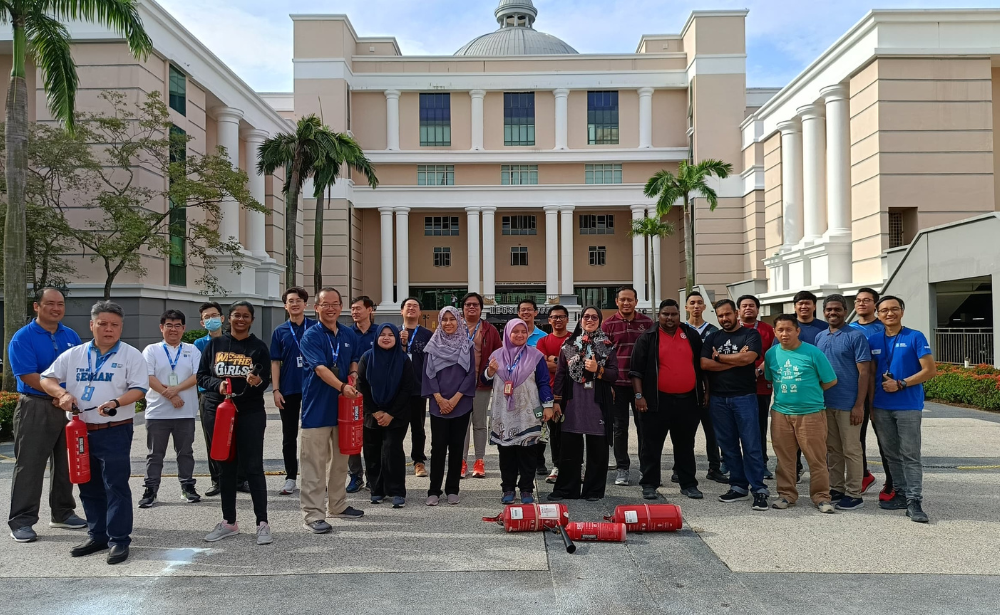SEGi University’s Faculty of Engineering, Built Environment and Information Technology (FOEBEIT) lab safety committee participated in a two-day training programme on “Basic Fire Fighting and Emergency Response Plan & Preparedness” held on 16 and 17 December 2024. This essential training saw 26 lecturers and lab staff members actively engaging in both theoretical and practical sessions to enhance their emergency response capabilities.
The objective of the training was to equip Emergency Response Team (ERT) members with vital skills to handle emergencies, focusing on the development of coordinated response plans, effective evacuation procedures, and rescue techniques. By imparting knowledge on the safe use of fire extinguishers, hose reels, and emergency protocols, the training provided participants with the tools to respond swiftly and efficiently in fire-related incidents or other crises. The session also included a ‘mock’ fire drill, which simulated real-life emergency scenarios to prepare participants for immediate action.
This initiative aims to reduce the risk of injuries, fatalities, and property damage during emergencies, fostering a safer environment for everyone. It promotes early detection and quick response to minimise harm, reinforcing SEGi’s commitment to a culture of safety and preparedness. The training not only developed participants’ confidence in managing emergencies but also reinforced the importance of organised communication and rapid evacuation strategies.
By prioritising safety knowledge and emergency preparedness, this programme supports SEGi’s commitment to building resilient communities and workplaces. The university continues to align with the United Nations Sustainable Development Goal (SDG) 3, Good Health and Well-being, by creating safer environments for staff and students. Furthermore, it contributes to SDG 11, Sustainable Cities and Communities, by preparing individuals to protect lives and properties during emergencies, and SDG 9, Industry, Innovation, and Infrastructure, by ensuring that workplace safety is integrated into operational practices.
SEGi’s proactive approach to safety preparedness demonstrates its dedication to enhancing organisational resilience and fostering a culture of safety awareness across all levels of its community. This event is organised in support of the following United Nations Sustainable Development Goals (SDG):
SDG 3 – Good Health and Well-being
SDG 9 – Industry, Innovation, and Infrastructure
SDG 11 – Sustainable Cities and Communities

